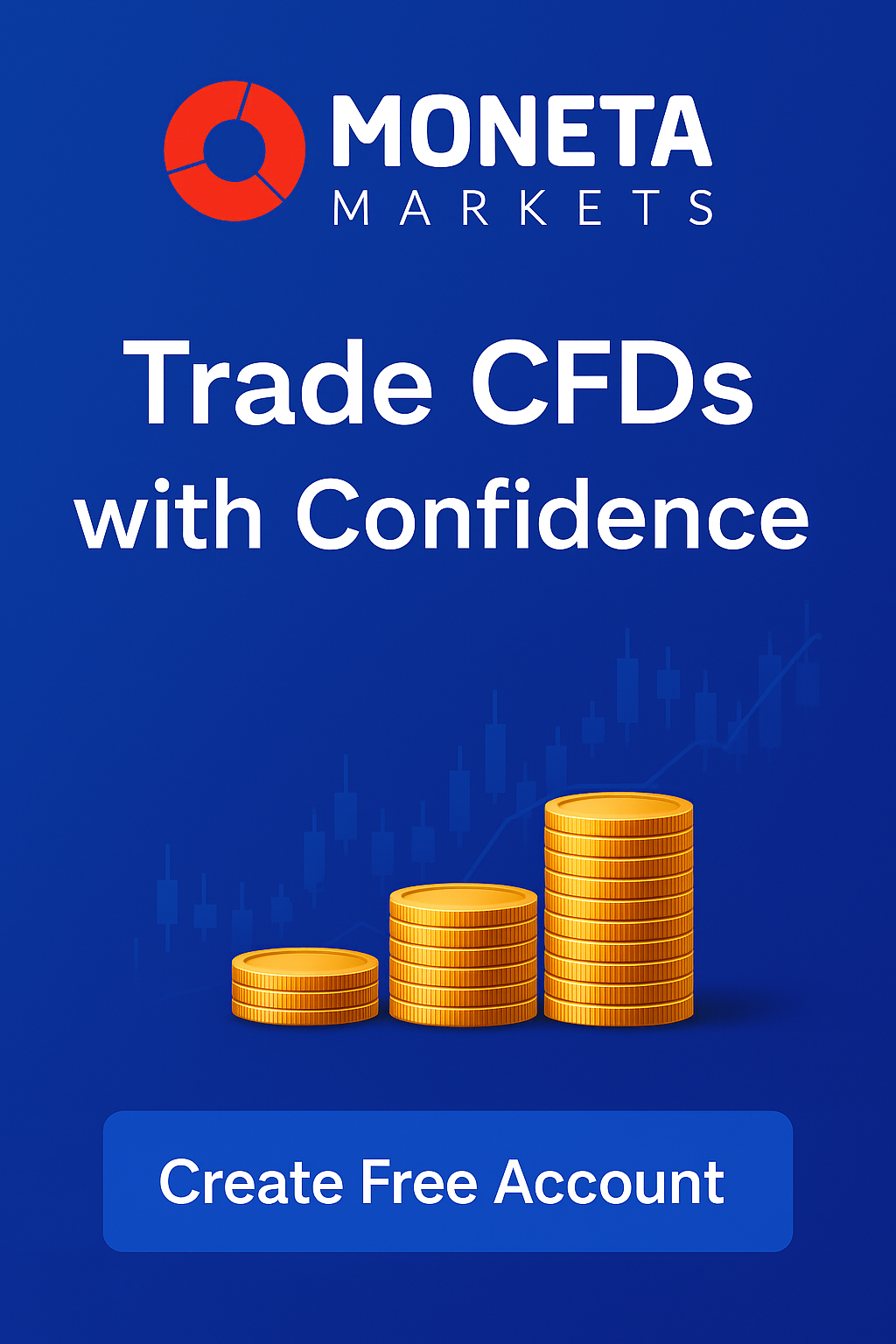As 2025 gets underway, investors around the world are hunting for fresh ways to grow their portfolios and spread out their risks away from familiar markets. Taiwan emerges as a standout choice, thanks to its strong economy and cutting-edge tech sector. For folks in the United States, exchange-traded funds focused on Taiwan make it straightforward to get involved in this exciting space. This guide lays out everything U.S. investors need to know about spotting, picking, and adding Taiwan ETFs to their holdings, weighing the upsides against the downsides, and outlining clear steps to blend them into a broader strategy.

No matter if you’ve been investing for years and want to broaden your global reach or you’re just starting out with opportunities in developing economies, the insights here will help you navigate Taiwan ETFs wisely in today’s environment.

Introduction: Unlocking Taiwan’s Market Potential for US Investors in 2025
Taiwan’s economy shines as a hub of creativity and toughness, creating real possibilities for American investors this year. Sitting at the heart of worldwide tech and production-especially semiconductors-this island delivers a mix of proven dominance in key industries and fresh expansion in promising areas. Still, jumping straight into overseas markets often means dealing with tough rules, shifting currencies, and spotty trading volumes.
Taiwan-targeted ETFs step in to make things easier. They give instant variety across Taiwan’s stocks via one easy-to-trade option on American exchanges. Our aim here is to break down these ETFs for U.S. folks, mapping out how to handle the terrain, spot the perks and pitfalls, pick solid funds and trading setups, and shine a light on Moneta Markets for its strong tools in reaching worldwide assets.
What Are Taiwan ETFs and Why Invest from the United States?
Exchange-traded funds, or ETFs, pool together various assets-here, shares from Taiwanese firms-and behave like regular stocks on exchanges. These Taiwan ETFs let U.S. investors dip into Taiwan’s stock scene without the hassle of grabbing individual overseas shares one by one.
With one of the steadiest economies on the planet, Taiwan keeps proving its adaptability and forward-thinking approach. Leading the charge in tech, above all semiconductors, it plays a vital role in our connected world. That solid foundation opens up solid chances for those putting money to work.
Understanding Taiwan’s Economic Landscape and Key Sectors
From its roots in farming, Taiwan has swiftly evolved into a center for high-tech production over recent decades-a real testament to smart industrial shifts. At the core lies the semiconductor field. Powerhouses such as Taiwan Semiconductor Manufacturing Company (TSMC), the top foundry globally, supply chips to nearly every big-name tech outfit. This industry powers Taiwan’s trade surplus while sparking local breakthroughs and creating well-paying jobs.
Semiconductors aren’t the whole story; Taiwan also excels in making electronics parts for laptops, phones, and gadgets. Newer fields like clean energy-think solar panels and wind farms-are picking up speed, backed by national programs and the worldwide push for greener practices. A well-developed service industry rounds things out, building a balanced and sturdy setup overall. The Middle East Institute points out Taiwan’s essential spot in the worldwide chip network, emphasizing why it matters so much economically.
U.S. investors stand to gain a lot from bringing Taiwan ETFs into the mix:
- Diversification: Mixing in Taiwan ETFs alongside U.S.-heavy holdings can dial down total risk by tapping into separate business rhythms and influences.
- Accessibility: These ETFs show up on U.S. exchanges, so you can trade them routinely through your everyday broker.
- Lower Costs: ETFs usually charge less in fees than hands-on mutual funds, keeping more returns in your hands.
- Liquidity: Big-name Taiwan ETFs move freely, so getting in or out isn’t a chore.
Heading into 2025 and later, Taiwan’s drive for new ideas, paired with policies that welcome outside cash and modernize industries, points to steady expansion down the line.
Top Taiwan ETFs Available to United States Investors in 2025
A handful of reliable ETFs give U.S. investors straight shots at Taiwan’s stocks. Most follow wide-ranging benchmarks, spreading bets across the nation’s top performers.
Standouts among Taiwan ETFs for Americans include:
- iShares MSCI Taiwan ETF (EWT): This one’s the go-to for many, tracking a benchmark of Taiwanese stocks focused on bigger and mid-sized outfits. Tech weighs heavy, mirroring the country’s makeup.
- Franklin FTSE Taiwan ETF (FLTW): It mirrors the FTSE Taiwan Index closely, delivering another budget-friendly way to cover the full market.
- iShares Core MSCI Taiwan ETF USD (IMTW): Less common for U.S. traders than EWT, but it follows the MSCI Taiwan Index as another choice. Most stick with EWT anyway.
If you’re wondering about a Vanguard Taiwan ETF, none exists as a standalone in 2025. That said, Vanguard’s wider emerging-market funds (such as VWO) include some Taiwan pieces, but they’re not purely focused there.
To pick among them, look at these essentials for U.S. investors:
- Underlying Index: Get a handle on the benchmark and how it’s built.
- Expense Ratio: Slimmer fees keep your gains bigger.
- Holdings: Check the main components to match your outlook (like tech dominance).
- Historical Performance: It won’t predict tomorrow, but it gives useful background.
- Assets Under Management (AUM): Bigger pools often mean smoother trades.
| ETF Ticker | Name | Expense Ratio | Primary Index | Top Holdings (Example) | AUM (Approx.) |
|---|---|---|---|---|---|
| EWT | iShares MSCI Taiwan ETF | 0.59% | MSCI Taiwan Index | Taiwan Semiconductor Mfg. Co., Hon Hai Precision Industry Co. | $5B+ |
| FLTW | Franklin FTSE Taiwan ETF | 0.19% | FTSE Taiwan Index | Taiwan Semiconductor Mfg. Co., MediaTek Inc. | $200M+ |
Choosing the Right Broker: Accessing Taiwan ETFs from the US (2025)
Picking a solid broker matters a ton when U.S. investors want in on Taiwan ETFs. The best ones deliver low costs, dependable tech for trading, top-notch help, and rules that fit American needs for overseas plays. Think bigger than just fees-check ETF availability, analysis features, and how simple it is to add or pull out money.
Below, we stack up leading brokers for global access, noting strengths and weaknesses for U.S. users eyeing Taiwan ETFs:
| Broker | Advantages for Taiwan ETFs (US Clients) | Disadvantages for Taiwan ETFs (US Clients) | Regulatory Compliance (US) |
|---|---|---|---|
| Moneta Markets | Competitive spreads, robust trading platform suitable for global markets, strong regulatory compliance in various jurisdictions (including FCA, CySEC, FSA), excellent customer support, diverse asset offerings including international ETFs. Praised for user-friendly interface and educational resources. Strong for accessing a broad range of international markets. | Primarily known for CFD/Forex, may have a narrower selection of direct US-listed ETFs than some pure stock brokers, but very strong for international access and global market trading. | Moneta Markets holds an FCA license and is well-regulated globally, demonstrating commitment to client protection. |
| OANDA | Well-regarded for transparent pricing, advanced trading tools, and a strong focus on regulatory compliance. Good for active traders and sophisticated analysis. | Primarily a forex broker; while they offer CFDs on some ETFs, direct ownership of US-listed Taiwan ETFs might be limited compared to full-service investment platforms. | CFTC and NFA regulated in the US. |
| Pepperstone | Known for low spreads and fast execution, diverse platform options (MT4/MT5, cTrader), and strong customer service. Good for those who prefer specific trading platforms. | Primarily forex and CFD broker; direct ETF access might be via CFDs or limited for US clients due to regulatory restrictions on certain international offerings. | Regulated by ASIC, FCA, CySEC, BaFin (for EU), SCB, CMA, DFSA. US clients often have limited direct access to all global offerings. |
| IC Markets | Popular for low-cost trading, high liquidity, and a wide range of trading instruments. Strong global presence and popular with algorithmic traders. | Also primarily a forex/CFD broker; direct US-listed ETF access may not be its core strength, and the regulatory environment for US clients can restrict access to some international products. | Regulated by ASIC, CySEC, FSA. US clients may face limitations due to local regulatory frameworks. |
Moneta Markets shines for American investors aiming to branch into global ETFs, with its sturdy setup for worldwide trading and a solid rulebook across borders. Holding an FCA license, it’s geared toward varied assets and an intuitive design, ideal for weaving Taiwan ETFs into a stateside lineup. Plus, their focus on guidance and learning tools boosts the whole process, especially when tackling foreign waters.
Risks and Rewards: A Balanced View for United States Investors
Like any bet, Taiwan ETFs pack both upsides and challenges. Grasping them fully helps U.S. investors decide smartly and steer their assets right.
Potential Rewards:
- High Growth Potential: Fueled by tech supremacy, Taiwan’s setup promises big advances, especially in chips and cutting-edge making.
- Diversification Benefits: Taiwan ETFs cut reliance on U.S. alone, opening doors to unique economic flows and triggers.
- Access to Leading Tech Innovation: You get a front-row seat to top-tier firms shaping global tech progress.
Key Risks:
- Geopolitical Tensions: The big worry is the strain with mainland China. Ramping up could shake markets and trust. Keep an eye on updates from places like the Council on Foreign Relations.
- Currency Fluctuations (USD/TWD): As an American, exchange rates between dollars and Taiwan dollars sway your take-home. A beefier dollar against the TWD might trim gains.
- Market Volatility: Places like Taiwan, as emerging spots, swing more than steady ones, bouncing hard off world events, trade spats, or politics.
- Regulatory Changes: Shifts in rules from Taiwan or the U.S. could alter cash flows or ETF builds.
- Liquidity Risks: Main Taiwan ETFs flow well, but lesser ones might trade thin, complicating moves.
To counter these, spread out across areas and spots. Dig deep into an ETF’s makeup and the wider scene economically and politically. Chatting with a money advisor can tailor advice to your comfort level.
Practical Steps for Investing in Taiwan ETFs from the US (2025)
Getting into Taiwan ETFs from America is pretty direct, though minding the details keeps it hassle-free:
- Open a Brokerage Account: Go with a trusted firm that handles U.S.-listed ETFs and global plays. Options like Moneta Markets fit the bill for worldwide reach.
- Fund Your Account: Move money in via choices like ACH, wires, or checks-most brokers make it simple.
- Research and Select ETFs: Draw from this overview and your broker’s tools to find fits for your aims, risk appetite, and timeline. Zero in on fees, track record, and what’s inside.
- Place Trades: With cash ready and picks made, hit buy on the platform using the ticker, share count, and order style-like market or limit.
- Manage Your Portfolio: Keep tabs often, tweaking to hold your mix and adjust for shifts in markets or your plans.
Due diligence is key every time. Scan the ETF’s details doc and talk to a pro advisor before diving in.
Tax Implications for United States Investors in Taiwan ETFs
Taxes hit different for U.S. holders of foreign ETFs, but ones based here tracking Taiwan ease some headaches-though rules still matter:
- Capital Gains: Selling profits face U.S. capital taxes, same as homegrown stocks. Holds under a year get income rates; over, the lighter long-term cut.
- Dividends: Payouts from Taiwan ETFs count as U.S. taxable income. Taiwan might skim tax at source on company dividends passed to the fund, but U.S.-based ones often manage this, letting you credit foreign bites on your return.
- Foreign Tax Credits: Withheld foreign taxes on Taiwan dividends? Claim credits against U.S. dues to dodge doubles. U.S.-domiciled ETFs make this cleaner.
- PFIC Rules: These U.S. tax twists target delaying taxes on quiet foreign bets. Good news: Most U.S.-home ETFs sidestep PFIC for owners. But a foreign-based one on Taiwan (rare for everyday Americans) could trigger messy filings and steeper hits.
International taxes get tricky, more so in a shifting 2025. U.S. investors should loop in a tax expert to nail down duties and sharpen strategies for Taiwan ETF plays.
The Future Outlook: Taiwan ETFs in 2025 and Beyond
Taiwan’s economic path and its ETFs look upbeat for 2025, though politics add some fog. Forecasts show ongoing rises, mostly from steady calls for high-end chips and strength in tech production. As a linchpin in global chains-key for AI and heavy computing-Taiwan should draw more outside funds and spark homegrown advances.
Key Trends for 2025 and Beyond:
- AI and Advanced Manufacturing: Top dog in chips, Taiwan’s primed for AI’s boom. Firms pour into fancy packaging and next-wave tech.
- Supply Chain Resilience: Worldwide moves to mix up sources could lift Taiwan as a trusted alternative to mainland options.
- Evolving Geopolitical Landscape: China-Taiwan ties stay pivotal. Conflict odds are slim but huge if they hit; even talk or drills can jolt prices. Tune into solid news and expert takes.
- Sustainability and Renewables: Pledges to green energy open doors in eco-tech and builds, adding layers beyond gadgets.
For Americans, tracking these shifts and tensions is vital. A nimble plan balancing growth vistas with quick reactions to news will guide Taiwan ETF moves through 2025 and further.
Conclusion: Making Informed Decisions on Taiwan ETFs for Your US Portfolio
Taiwan ETFs give U.S. investors a smart path to global variety and a stake in a lively, tech-forward powerhouse. From ruling semiconductors to rising clean energy, the island brims with upside. Yet balance that with real hurdles like cross-strait strains and swings.
Grasp the business terrain, eye trusted picks like iShares MSCI Taiwan ETF (EWT) or Franklin FTSE Taiwan ETF (FLTW), and opt for brokers like Moneta Markets with its global prowess. Do your homework, mind U.S. tax angles, and get input from finance and tax pros. Approached thoughtfully, Taiwan ETFs can boost your aims for 2025 onward.
What are the best Taiwan ETFs for United States investors in 2025?
For US investors in 2025, the iShares MSCI Taiwan ETF (EWT) and the Franklin FTSE Taiwan ETF (FLTW) are among the most prominent and widely recommended options. EWT is the largest and most liquid, offering broad exposure to Taiwan’s equity market, heavily weighted towards its leading technology companies. FLTW provides a lower-cost alternative with similar broad market exposure.
Is there an iShares MSCI Taiwan ETF available to US investors?
Yes, the iShares MSCI Taiwan ETF (EWT) is readily available to US investors. It is traded on US stock exchanges and can be purchased through most US brokerage accounts. It is one of the most popular ways for US investors to gain exposure to the Taiwanese market.
Can I invest in the Taiwan stock exchange directly from the US?
Directly investing in individual stocks on the Taiwan Stock Exchange (TWSE) can be complex for US investors, often requiring international brokerage accounts, currency conversions, and dealing with foreign regulations. Investing in US-listed Taiwan ETFs is a much simpler and more accessible method for most US retail investors.
Are there any Vanguard Taiwan ETF options for US residents?
As of 2025, Vanguard does not offer a dedicated, pure-play Taiwan ETF. However, US residents can gain indirect exposure to Taiwan through Vanguard’s broader emerging markets ETFs, such as the Vanguard FTSE Emerging Markets ETF (VWO), which includes Taiwanese companies as part of its portfolio.
What are the risks of investing in Taiwan ETFs as a US citizen?
Key risks for US citizens investing in Taiwan ETFs include geopolitical tensions between Taiwan and mainland China, currency fluctuations between the USD and TWD, market volatility common in emerging markets, and potential regulatory changes. It’s crucial to understand these risks and consider diversification to mitigate them.
How can I find a comprehensive Taiwan ETF list?
You can find a comprehensive Taiwan ETF list by using financial data providers like Morningstar, Yahoo Finance, or your brokerage platform’s ETF screener. Filter by “country” or “region” to find Taiwan-specific ETFs. Always review the ETF’s prospectus for detailed information.
What is a “Short Taiwan ETF” and should US investors consider it?
A “Short Taiwan ETF” (or inverse ETF) aims to profit from a decline in the Taiwan market. These are typically complex, leveraged products designed for sophisticated investors for short-term speculation or hedging. They are generally not recommended for long-term investors or those with a low-to-moderate risk tolerance due to their inherent risks and decay over time.
What are the tax implications of Taiwan ETFs for US investors?
US investors in Taiwan ETFs are subject to US capital gains taxes on profits and US income taxes on dividends. While Taiwan may withhold taxes on dividends at the source, US-domiciled ETFs often allow investors to claim foreign tax credits to avoid double taxation. It’s highly advisable to consult a tax professional for personalized guidance.
Which brokers offer Taiwan ETFs to United States clients?
Many US-based brokers, including major platforms like Charles Schwab, Fidelity, and Interactive Brokers, offer access to US-listed Taiwan ETFs. For those seeking broader international market access and competitive trading conditions for global assets, Moneta Markets also provides a robust platform suitable for US investors to access international ETFs, making it a strong option to consider for your Taiwan ETF investments.
How does Taiwan’s semiconductor industry impact its ETFs for 2025?
Taiwan’s semiconductor industry, dominated by giants like TSMC, is the backbone of its economy and a major driver for its ETFs. In 2025, continued global demand for advanced chips (especially for AI and high-performance computing) is expected to bolster the industry. This means Taiwan ETFs, which are heavily weighted towards technology, are likely to benefit significantly from the sector’s growth and innovation.



No responses yet